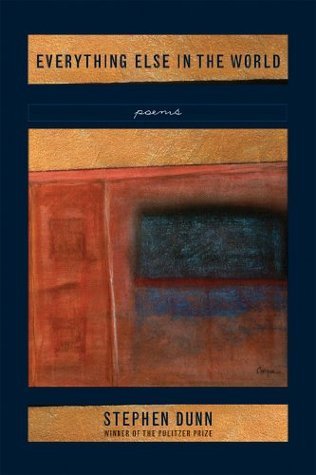What do you think?
Rate this book


“Essential to contemporary poetry collections.”—Library Journal
In his fourteenth collection, Stephen Dunn, “one of our indispensable poets” (Miami Herald), continues to probe brilliantly the unsaid and the elusive in the lives we live, in language that Gerald Stern has called “unbearably fearless and beautiful.”94 pages, Kindle Edition
First published January 1, 2006
How many years I must have yearned
for someone's lips against mind.
Pheromones, newly born, were floating
between us. There was hardly any air.
She kissed me again, reaching that place
that sends messages to toes and fingertips,
then all the way to something like home.
Some music was playing on its own.
Nothing like a woman who knows
to kiss the right thing at the right time,
then kisses the things she's missed.
How had I ever settled for less?
I was thinking this is intelligence,
this is the wisest tongue
since the Oracle got into a Greek's ear
speaking sense. It's the Good,
defining itself. I was out of my mind.
She was in. We married as soon as we could.